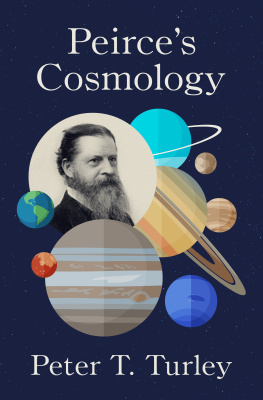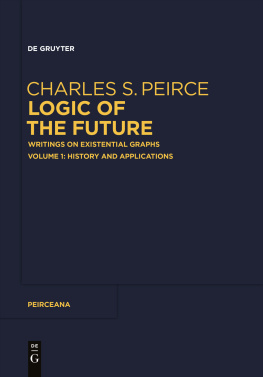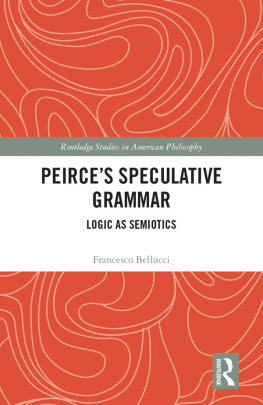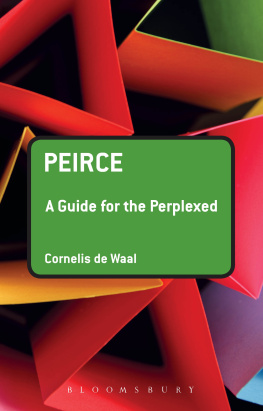Pagebreaks of the print version



Peirces Cosmology
Peter T. Turley
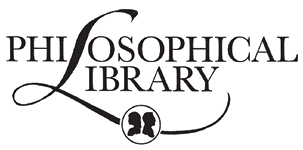

In memory
Of my parents
Preface
This study is intended as a critical sketch of the cosmology of Charles Sanders Peirce (1839-1914), one of the founders of pragmatism and now generally regarded as Americas most original philosopher. Though he devoted much attention to this part of philosophy, which he called physical metaphysics, Peirce did not produce any work of substance which gives us an organized account of his cosmological views; rather, he presents them in diverse philosophical and scientific contexts. I have organized these views around Peirces conception of the law of nature, a conception of the first importance not only in his cosmology but in his philosophical thought as a whole.
Thanks are due to the copyright holders for permission to reproduce material from the following publications:
Collected Papers of Charles Sanders Peirce , Vols. I-VI, ed. Charles Hartshorne and Paul Weiss; Vols. VII-VIII, ed. Arthur W. Burks (Cambridge, Massachusetts: Harvard University Press, 1931-58). Vol. I 1931, 1959, Vol. II 1932, 1960, Vols. III and IV 1933, 1961, Vol. V 1934, 1962, Vol. VI 1935, 1963, Vols. VII and VIII 1958, by the President and Fellows of Harvard College.
The Charles S. Peirce Papers (Microfilm Edition), Houghton Library, Harvard University (Cambridge, Massachusetts: Harvard Philosophy Department, 1963-67).
Papers published by the author in Journal of the History of Ideas, The Modern Schoolman , and Transactions of the Charles S. Peirce Society .
Last but not least is the expression of gratitude to my wife, Harriet, for the help she has given me in completing the study.
Chapter I
The Law of Nature
An acquaintance with Peirces categorial system is required if his characterization of law as Thirdness is to be understood. In his derivation and discussion of the categories, Peirce justifies his claim to the title of metaphysician; moreover, he brings to this topic a thorough knowledge of older categorial systems such as those of Plato, Aristotle, Kant, and Hegel. Of these, Kants had the greatest influence on his own, although it should be emphasized that for Peirce the categories are not merely forms of the understanding; rather, he conceives them as representing genuine modes of being. One indication of Kants influence can be seen in Peirces attempt to derive his categories from logic. It would be incorrect, however, to conclude that Peirce justifies his categories solely on the bases of logic and authority; as we shall see, the empirical bent of his mind demanded an appeal to experience as the primary substantiation.
THE CATEGORIES
Before examining the empirical or phenomenological treatment of the categories, it would be well to say something of his attempt to derive them from logic. That Peirce seeks a logical derivation should come as no surprise since he was, and considered himself to be, primarily a logician; moreover, his early and deep acquaintance with the Critique of Pure Reason must have made such a treatment seem indispensable. The logical derivation of the categories was set forth in the 1860s, whereas the phenomenological treatment came three decades later.
The Logical Derivation
In 1898 Peirce reminisces about the earlier logical treatment:
Even without Kants categories, the recurrence of triads in logic was quite marked, and must be the croppings out of some fundamental conceptions. I now undertook to ascertain what the conceptions were. This search resulted in what I call my categories (4.3).
In another context, Peirce proceeds to identify these fundamental conceptions which the study of logic reveals:
Three conceptions are perpetually turning up at every point in every theory of logic, and in the most rounded systems they occur in connection with one another. They are conceptions so very broad and consequently indefinite that they are hard to seize and may be easily overlooked. I call them the conceptions of First, Second, Third. First is the conception of being or existing independent of anything else. Second is the conception of being relative to, the conception of reaction with, something else. Third is the conception of mediation, whereby a first and second are brought into relation (6.32).
The familiar term, proposition, and syllogism of traditional logic can be used to illustrate this point (see 1.369): the term is what it is independent of anything else and is therefore a First; the proposition, on the other hand, is a Second because its being consists in the relating of subject and predicate; the syllogism is a Third in that it is the mediation of major and minor terms by a middle.
Another indication of the three categories in logic can be found in Peirces division of signs into icons, indices, and symbols (general signs). An icon, he says, is a sign in virtue of its own characteristics (Firstness); thus, any picture is an iconic sign of its object. It is true that every sign requires an object, but the icon would retain that which renders it significant were its object non-existent; and it is this which distinguishes it from the other kinds of sign. The index is a sign in virtue of being really related to its object (Secondness). The act of pointing at a certain picture is an indexical sign; the act is significant only because of the actual connection of the pointers finger and the object. Finally, the symbol is sign of a particular object in virtue of its interpretant (Thirdness); the word picture signifies the reality on the wall only because of the conception with which it is connected. The difference, then, between the index and the symbol is that the symbol would lose its sign character if there were no interpretant, whereas the index would not (2.304).
Peirce found still another indication of the categories in his analysis of the syllogism. In every syllogism, he points out, the premises constitute a sign of the conclusion; when, however, we examine the three kinds of syllogism, abductive, inductive, and deductive, we find that their premises are respectively icons, indices, and symbols of the conclusions (1.559). Inasmuch as these different kinds of sign suggest the categories, it must follow that the different kinds of syllogism do so as well. The following syllogisms illustrate Peirces point:
All the beans from this bag are white.
These beans are white.
These beans are from this bag.
This is what Peirce calls the abductive syllogism, the conclusion of which is a tentative explanation of some phenomenon. The premises of this syllogism constitute a likeness or icon of the conclusion in that the first premise is showing what a bean must be like in order to be from the designated bag.
These beans are from this bag.
These beans are white.
All the beans from this bag are white.
This is an inductive syllogism. Here, the first premise is saying that the particular beans selected constitute an index of all the beans in the bag; thus, the premises constitute an index of the conclusion (which is concerned with the character of all the beans).

